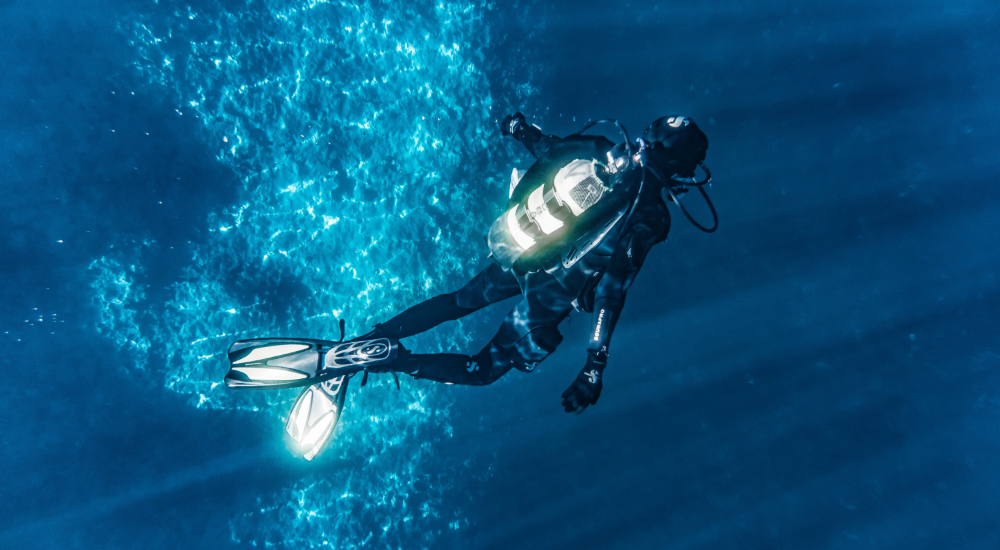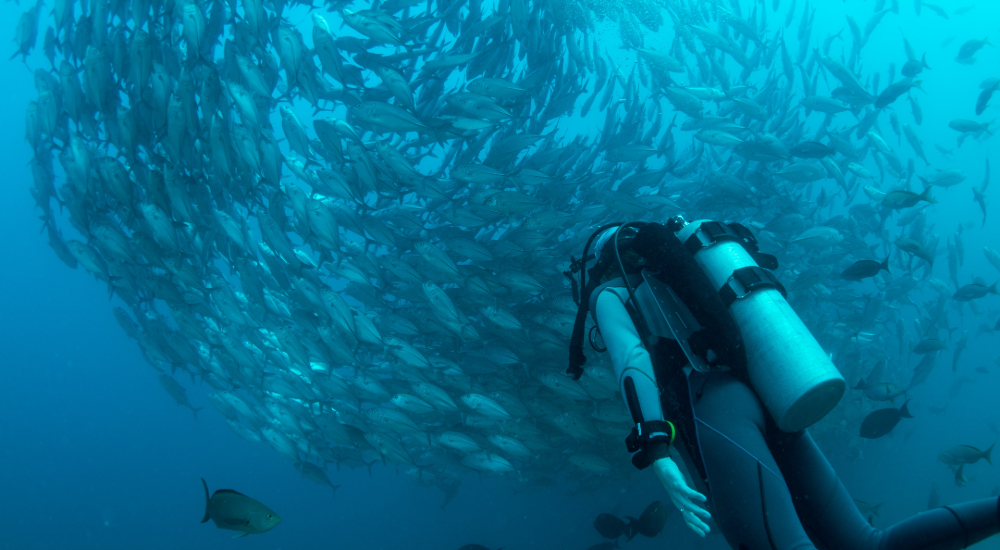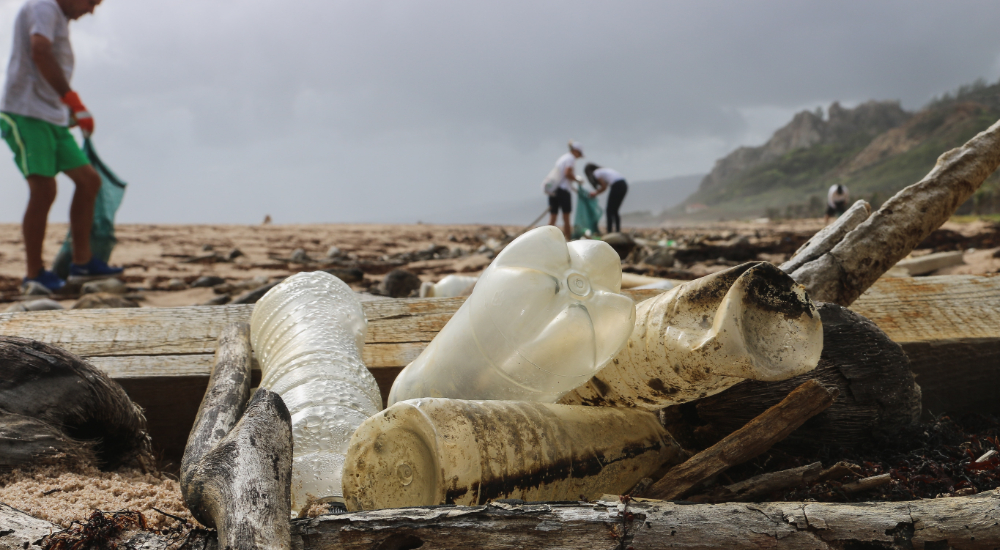Tourism is a double-edged sword that can benefit the economy and bring people closer to nature, but it can also destroy ecosystems. Every diver out there loves the idea of pristine and untouched reefs, but maintaining an underwater paradise requires a bit of effort from all parties involved – whether it’s the divers, dive shops, or locals. We must acknowledge that diving carries risks for the environment, but there are plenty of ways we can practice sustainable diving to avoid disrupting life undersea.
Choose a Conservation-Friendly Dive Shop
Picking a responsible dive operator is the most important step in planning an eco-friendly dive trip. Your money should go into the hands of those that work to maintain the reefs in good condition and give back to the community. The more dive shops see that divers want to dive with responsible businesses, the more dive shops will follow suit.
Eco-conscious dive operators do certain things to ensure that the dive sites remain in pristine condition. Reef cleanups are some of the main activities they get involved in. It’s also important to consider how their liveaboards operate. Do they offer biodegradable soaps and sunscreens? Do they recycle?
Avoid dive operators that have a reputation for feeding the fish, because this changes their natural habits and the animals may become dependent on humans. Touching fish can also change their natural behavior and can even make them sick, so no respectable dive guide should act this way nor should they allow clients to touch wildlife. The same goes for touching, kicking or standing on coral, behaviors that can kill the delicate corals immediately.
Master Buoyancy Control
Buoyancy control is an essential skill you need to master in order to become a good diver. It not only helps your finning techniques, makes you a safer diver, and reduces air consumption but it also keeps you from dragging your fins along the coral. by perfecting your buoyancy skills, you will avoid disturbing marine life and preserve it for others to see in the future. Keep in mind that coral takes years to grow and one seemingly harmless kick can kill it.
Don’t Touch or Chase Marine Life
Touching marine life may be tempting, but when you’re touching or chasing wildlife, you’re putting both yourself and the animals at risk. Corals and fish have an anti-bacterial layer of mucous covering them. It helps them fight infection and keeps out parasites. When someone touches the animals, they may remove much of the protective coating.
Furthermore, wildlife is born with various defense mechanisms. When you touch certain creatures, you may end up with a nasty bite or sting that could send you to the emergency room. Stonefish and scorpionfish are two examples of poisonous masters of disguise, whose toxin-loaded fin spines can sometimes inflict serious injuries. A large number of soft and hard corals, such as fire corals, also possess mechanisms designed to inflict damage upon anything that touches them.
Apply Reef-safe Sunscreen
Tons of sunscreen wash into coral reefs worldwide every year. Most of it concentrates on popular tourist sites, including national parks and marine protected areas. The main chemical ingredients in most sunscreen – oxybenzone and octinoxate – are highly toxic to developing corals and marine life. They can induce bleaching, deform the young corals, and even kill them. This is why it’s very important to choose the right sunscreen.
Products marked as “reef-safe” or “reef-friendly” may not be entirely safe, but they do not contain harmful ingredients such as oxybenzone and octinoxate. Mineral sunscreen products are a safer option than chemical sunscreens, but you still need to make sure your sunscreen has been tested biodegradable.
Dispose of Rubbish Correctly
Some of the most common items of marine litter include bags, bottles, cigarette butts, and cotton buds. Man-made debris is found in marine habitats throughout the world and up to 80% of the total marine debris is plastic. These microcontaminants’ effects on wildlife include loss of nutrition, intestinal blockage, internal injury, starvation, and even death.
We inevitably produce rubbish every day. Recycling or composting may not be available in every area you travel to, but you can make sure to always put your rubbish into a waste bin. If you’re on a boat, more precaution is needed so that no rubbish gets blown off the boat.
Don’t Buy Seashells
Harvesting seashells for crafts and souvenirs is a large-scale industry, despite it being illegal in many parts of the world. Many of the shells still have living animals inside them, so they are left to dry in the sun, then dunked in oil and acid to clean them. The process is not only cruel but it also has a devastating impact on the environment since the animals inside the shells serve a variety of ecological roles. Furthermore, scientists consider mollusks to be good indicators of overall ecosystem health.
Avoid buying these souvenirs to discourage the stall owners from selling them.
Join Marine Cleanups
Environmental initiatives are launched all over the world. Many dive centers will arrange coastal cleanups and cleanup dives specifically aimed at collecting rubbish. Make this a habit and pick up litter on every single dive, not just during these activities. Consider carrying a mesh bag on your dives to deposit any litter items you find in the sea. A dive knife is also helpful in areas with discarded fishing gear which may be wrapped around wildlife.
Reduce or Eliminate Seafood Consumption
Many of us eat some sort of seafood, especially when we go on holidays where these products seem abundant. But eating seafood has a direct impact on the aquatic environment. The more tourists consume these marine animals, the more they’re going to be fished. Nearly 90% of the world’s marine fish stocks are now fully exploited, overexploited or depleted. If you can’t avoid reducing or eliminating seafood, ensure that the food on your plate is sustainable and fished ethically.
Report Environmental Violations
Report any environmental violations – such as overfishing or fishing in restricted zones, pollution, and any other threat to the environment – that you witness to the concerned authorities. Likewise, if you notice a dive guide or a client doing something illegal or unethical, bring it to the attention of the dive operations management or the local authorities.
And Don’t Forget to Inspire Others
Spread the word about the various ways we can reduce our impact on the environment. It’s easier than ever to reach large masses of people through social media platforms such as Facebook, Instagram, Twitter, YouTube, among many others. Share eco-related content and you may inspire others to follow in your footsteps.


